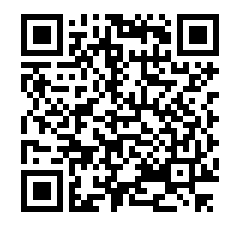Units of the PSP Certification Program™
Unit 1 – Fundamentals of Primary Spine Care
Unit 2 – The Lumbar Spine
Unit 3 – The Cervical Spine
Unit 4 – Clinical Management and Final Proficiency Exam
Prospective Students:
Or, scan below:

Course Participants:
Participants who are accepted into and registered for the PSP Program can access the course using the link below.
Unit 5 – Clinical Management
Unit 5 – Online Educational Modules:
Topic 1: Clinical management
- Moving beyond diagnosis and treatment to clinical decision making and clinical management: the true PSP
- Team Based Care
Topic 2: Pharmacology
- Part 1: Medications that are prescribed for spine pain
- Anti-inflammatory medications: NSAIDs, steroids
- Pain medications: acetaminophen, opioids
- Muscle relaxants
- Anti-convulsants
- mood stabilizers
- Part 2: Medications that can produce musculoskeletal side effects
- Part 3: Identifying aberrant drug behavior
Topic 3: Principles of Evidence-Based Practice
- Overview of EBP – what is it?
- Overview of research designs
- Basic science research
- Observational studies
- Diagnostic studies
- Qualitative research
- Randomized, controlled trials, meta-analyses and systematic reviews
- Asking clinical questions and seeking the answer
Topic 4: Work Related Topics
- Stay at Work/ Return to Work process
- Functional capacity evaluations
- Work Conditioning/Work Hardening
- Chronic Pain Management Programs/Functional Restoration
Topic 5: Cervical Manipulation and Stroke – an Understanding for the PSP
- Review
- Pathophysiology of vertebral artery dissection
- Epidemiology of vertebral artery dissection
- Most common initial symptoms
- The evolution of the association between CMT and vertebral artery dissection
- Case reports and case series
- Surveys
- Biomechanical studies
- Case-control studies
- Where are we now?
- How to communicate vertebral artery dissection as a “risk”
- How to detect subtle signs and symptoms (if they are present)
- What to do if a patient has a stroke in your office
Topic 6: Special topics
- Primary spine care in the context of public health Part 1
- Primary spine care in the context of public health Part 2
- Pre/Post Surgical Procedures
- Scoliosis
Topic 7: Written documentation and communication
- Documentation: Part 1
- Documentation: Part 2
Unit 5 – Live 2-Day Workshop:
The following topics will be covered in the live workshop.
Review of the principles of primary spine care and CRISP® Protocols
Clinical decision making
- regarding treatment recommendations and what to do each visit
- regarding end point of care
- what if the patient does not respond to an adequate trial of treatment?
- regarding invasive or intensive interventions
Relationship-Centered Care and the Therapeutic Alliance revisited
- Affective reassurance
- Cognitive Reassurance
- Use of language
Thoracic Pain
Multiple Actual Cases of various clinical scenarios in Primary Spine Care - Interactive discussions
(please note that the content will be updated as needed)
Updated | 01.31.2019
